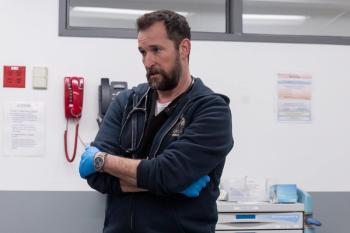
Gates Bets on Big Data in Alzheimer's Fight
“We need to use data better,” the billionaire wrote in a blog post announcing a huge investment.
Bill Gates today announced a $50 million donation to study and develop Alzheimer’s disease treatments, emphasizing the role that big data can play in curbing the disease before it becomes an even greater burden on world healthcare costs.
On his
“We should compile this data in a common form, so that we get a better sense of how the disease progresses,” Gates wrote. A well-curated data set will help researchers, and he encouraged more research into genetic disposition to the disease.
“The success we've had in other disease areas like cancer involved a generous government R&D budget, lots of small startups, many of whom failed, and then big pharma,” he told Marketplace in
The $50 million donation will go to the Dementia Discovery Fund (DDF), a private collaboration between governments, charities, and the healthcare industry. Citing personal experiences watching family members suffer from Alzheimer’s—“like you’re experiencing a gradual death of the person,” he wrote—Gates made the investment personally rather than through the Bill & Melinda Gates Foundation.
DDF’s portfolio is comprised of startup biotech and precision medicine firms, like Ribomterix, which attempts to identify new mRNA targets for neurological therapies, and Cerevance, which uses new technologies to study the pathways of neurological disorders.
The fund’s scientific advisory board includes representation from several of the world’s largest pharmaceutical companies, including GlaxoSmithKline, Takeda, Pfizer, Biogen, and Eli Lilly and Co.
“The first Alzheimer’s treatments might not come to fruition for another decade or more, and they will be very expensive at first,” Gates wrote. “Once that day comes, our foundation might look at how we can expand access in poor countries.”
The Microsoft billionaire continued that new Alzheimer’s therapies were imperative given number of people living longer and thus developing the disease. “With all of the new tools and theories in development, I believe we are at a turning point in Alzheimer’s R&D,” he wrote.





























































































